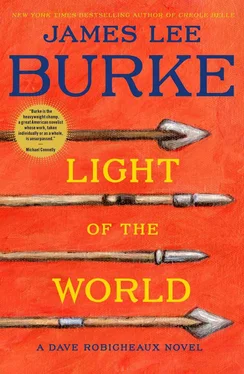“My name is Seymour, alcoholic addict,” he said.
“Hi, Seymour!” everyone said.
He carried his wallet on a chain and wore a long-sleeved flannel shirt, even though the evening was warm. He wore jeans stitched with guitars on the back pockets and cowboy boots that looked made of plastic. There was an oily shine on his forehead, and his voice sounded like a guitar string wound on a wood peg to the point of breaking.
“The subject I got tonight is people who try to take a dump inside your head, and after a while you don’t know if it’s them who’s the problem or you,” he said. “What I’m saying is there was this guy who came into the place where I work, and he had this stink on him like dog shit, and when I said something about it, he told me I had shot off my mouth to the wrong guy and he was gonna teach me a lesson.
“He told me to look into his face. No, he said look into his eyes. He really made me afraid. My sponsor says I haven’t owned up on the Fifth Step and I got a lot of buried guilt that bounces off other people and comes back on me. It makes me want to drink and use. I thought about going out and copping tonight, but I came to a meeting instead. Maybe all this is just my imagination working, right?”
Everyone thought he was finished and had started into a collective “Thanks, Seymour” when he waved his hands at the air and began talking again. “See, he made me go down to a pharmacy and pick up his prescriptions for him and shop for women’s stuff, a guy I never saw before, I mean a guy who took pleasure in telling me what a pitiful loser I was. Maybe that’s what I am. I don’t know, man, but I feel like walking out on the fucking railway track. Know what he said when he was going out the door? ‘Hey, tell your friends you met the Tin Man.’ Who’s the fucking Tin Man?”
Others tried to help him by telling their stories, but it was obvious that Seymour had packed his bag and moved into a dark space inside his head that no one else could enter. After the meeting ended, I put my hand on his shoulder. “My name is Dave Robicheaux,” I said. “You got a minute?”
“You a cop?”
“What makes you think that?” I said, smiling.
“I’ve seen you at another meeting. You wear a sport coat and keep your hands at your sides. Cops never let you know what they’re thinking. I’m right, huh?”
“Yeah, how about we go outside?” I said.
“I’m not feeling too good right now. Maybe I should head home.”
“The guy in your store is from Kansas. He’s a bad dude. And we need to talk.”
He looked out the window at the sun descending beyond the mountains in the west. “Mind if I smoke?”
“No,” I lied.
We sat on the steps of the church in the twilight. The streetlamps had come on, and the maple trees along the sidewalks contained a green luminescence that reminded me of the subdued yet brilliant colors you see in a van Gogh painting. He pulled a cigarette out of the pack in his shirt pocket and stuck it in his mouth and struck a paper match and tried to cup it in his palms, but he was shaking so badly, he dropped the match on the concrete. “I feel like I’m jonesing,” he said.
“I think you’re a stand-up guy, Seymour. It takes guts to talk about your problems in a roomful of people, many of them strangers. Did this guy in your store have a name besides Tin Man?”
“No, just a stink. It’s like he left shit prints all over the place. I had to wipe down everything he touched with Lysol.”
I didn’t want to see him get wired up again, so I changed the subject. “You’re not too warm in that shirt?”
“I was trying to hide my tats.”
“You were in the system?”
“No. The guy called me a fraud. I think he’s probably right. I didn’t earn my ink. I wanted people to think I was a badass. I even got the meeting off track tonight. We’re supposed to talk about using and drinking, not about problems with old geeks who read porn magazines. I feel awful.”
“He wants to infect others with his sickness, partner. Don’t let him get inside your head. You’re a good guy. You keep remembering that.”
“When I looked into his eyes, it really scared me, man. It was like looking into a cave that didn’t have a bottom.”
“Did he give you any indication where he might be living?”
“No. He had two girls with him. He was driving a gray SUV.”
“Do you remember the tag?”
“I wrote it down, then erased it.”
“Do you remember any part of it?”
“No. It was a Montana plate. That’s all I know. He said he was the godfather of the two girls. You’ve had some kind of run-in with him?”
“I think he tried to kill my daughter. If we’re talking about the same man, his name is Asa Surrette. He’s tortured and killed eight people.”
“Jesus,” he said. “Maybe that’s why he had those girls with him. You think they’re runaways? I wonder if that’s why he had all the dope.”
“What dope?”
“The OxyContin. He had another prescription, too. I think it was for sleeping pills or downers.”
“What were the other items he made you buy?”
“Tampons, toothpaste, fingernail clippers, dental floss, women’s deodorant, Pepto-Bismol.”
“He didn’t say who these things were for?”
“He wasn’t someone you ask a lot of questions. He said I was part of history. What’d he mean by that? What the fuck does history have to do with any of this?”
“Nothing,” I said.
“OxyContin is as close to heroin as legal dope gets. He’s gonna cook the Oxy and shoot those girls up, isn’t he? That’s how he’s gonna get in their pants.”
“He masturbates on his victims after he strangles them. That’s the guy who was in your store, Seymour. You treat your encounter with him as you would a sickness. You let go of it forever. He has nothing to do with your life. You have a lot of friends in that room upstairs. You keep remembering who you are, a likable guy who’s doing the best he can. You got me on that?”
“Yes, sir.”
I wrote my cell number on the back of my departmental business card and gave it to him. When I got up to go, he remained on the steps, staring up at me, not speaking.
“Tell you what, how about a hamburger and a cup of coffee?” I said.
“I think I can handle that,” he replied.
The real significance of my conversation with him did not hit me until four the next morning. I sat up in bed, numb, my ears ringing with a sense of urgency that seemed to have no origin. I went into the bathroom and turned on the light and propped my arms on the lavatory, trying to reconstruct the dream I’d just had. In it, I saw a girl locked inside a giant plastic bubble, her hands pressed against the side, her cries inaudible, her oxygen supply running out.
I looked in the mirror and saw Molly standing behind me. “Did you have a nightmare?” she said.
“She’s alive,” I said.
“Who’s alive?”
“The girl who was abducted up by Lookout Pass,” I replied.
I was in Elvis Bisbee’s office by nine that morning. I told him of my chance meeting with Seymour Little. He made notes on a legal pad while I spoke. “Okay, we’ll talk with this kid and check out the pharmacy,” he said. “Thanks for coming in.”
“I’ve already been to the pharmacy. The prescriptions were phoned in by a scrip doctor in Whitefish. I called his office. He’s somewhere in Canada and not expected back for a while.”
“ You went to the pharmacy?”
“That’s right.”
“What makes you think you can come here from out of state and conduct your own investigation?”
“I’m sorry you don’t approve.”
He set down his pen and stared out the window at the trees and the war memorial on the courthouse lawn. “Mind telling why the pharmacist shared his information with you?”
Читать дальше












